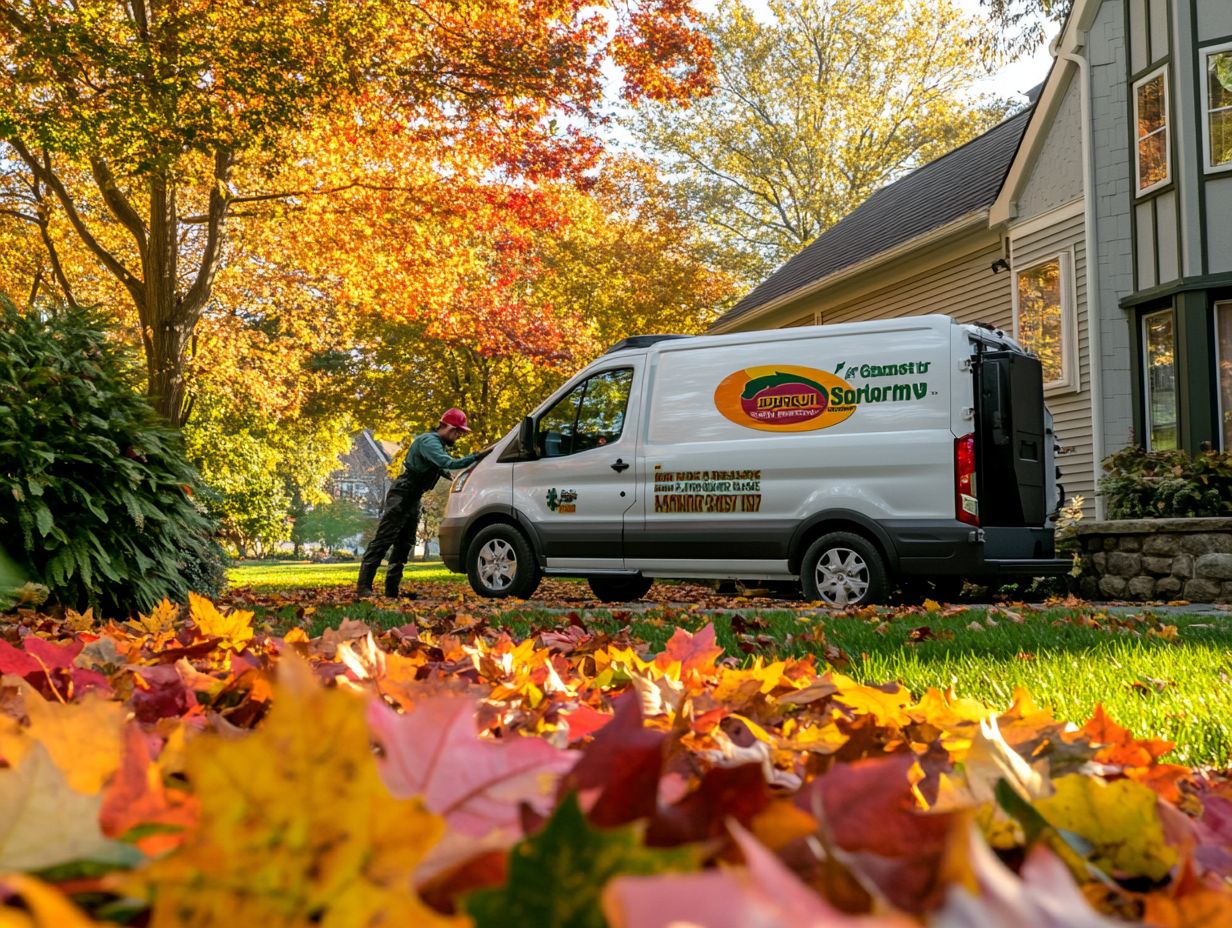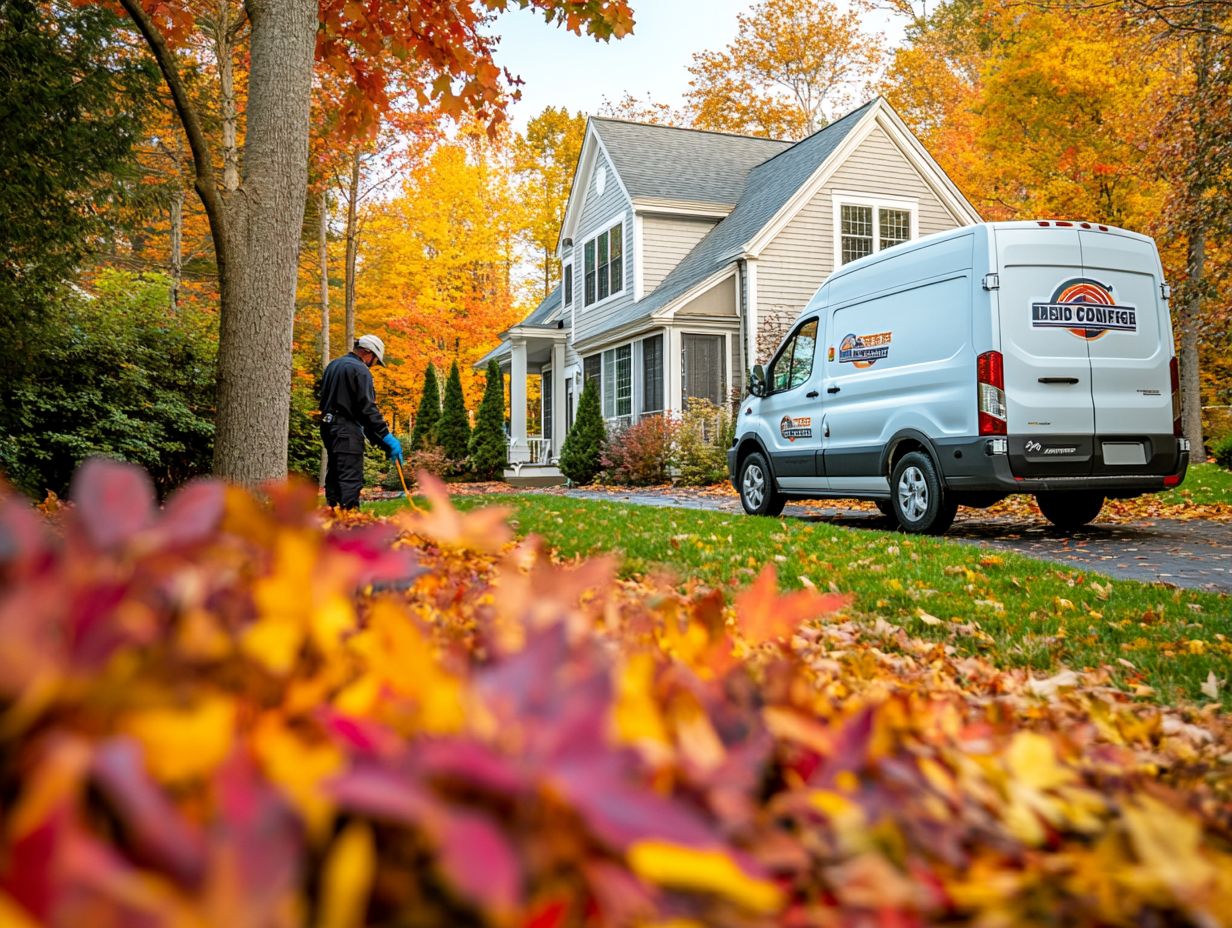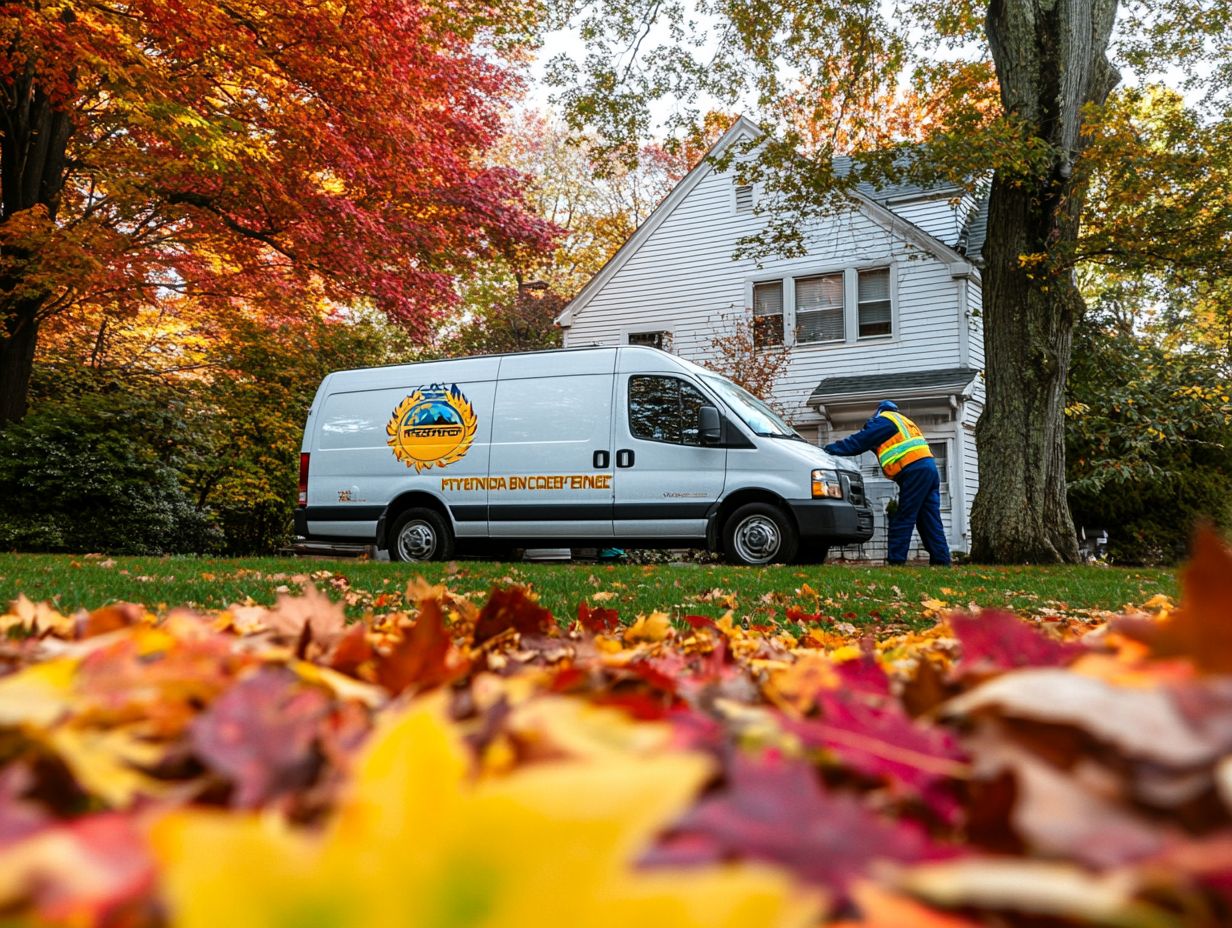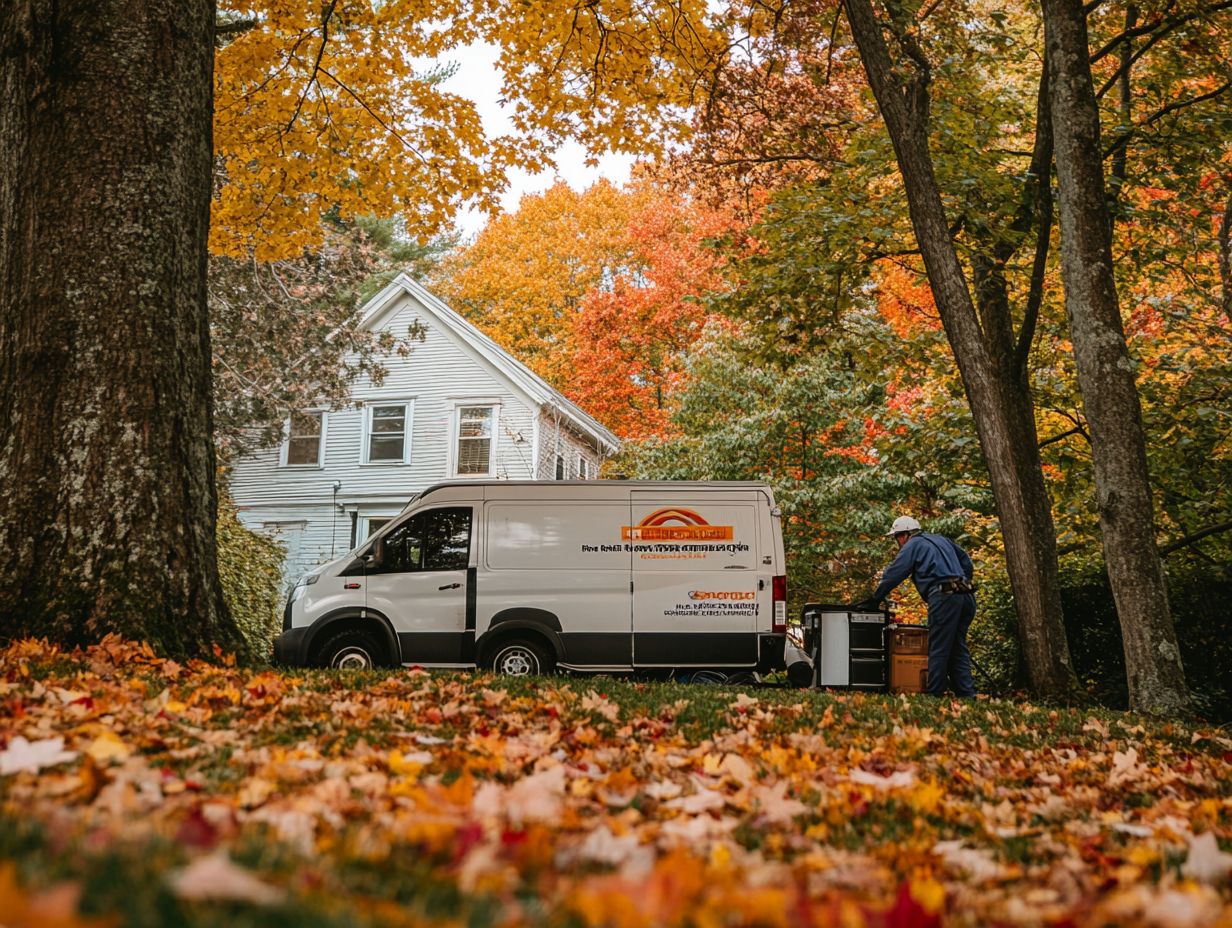In the competitive world of Massachusetts pest control, you know that effective marketing is essential for attracting and keeping your customers. With the unique challenges that come from the region's diverse pest issues, it’s important for you to implement tailored strategies to really stand out.
This article dives into why having a solid marketing plan matters. It’ll guide you through essential steps like defining your target audience and leveraging local SEO to your advantage.
You’ll discover the best marketing strategies specifically designed for pest control companies and find out how to measure your success. Get ready to uncover the keys to thriving in this important industry!
Why Is Pest Control Marketing Important for Massachusetts Businesses?

Pest control marketing is super important for businesses in Massachusetts, especially if you want to stay ahead in the pest control game. With pests popping up everywhere, homeowners are on the lookout for effective pest control services to keep their properties safe.
That’s why you need a solid marketing strategy that includes digital marketing, local SEO, and targeted advertising to reach potential customers. By enhancing your online presence through SEO tailored for pest control, you can really boost your visibility and attract more leads, making sure your services are the first ones people think of when a pest emergency strikes.
How to Develop a Pest Control Marketing Plan?
Crafting a pest control marketing plan is crucial for any pest control company aiming to thrive in Massachusetts. The first thing you want to do is define a clear marketing strategy that lays out specific goals.
Think about how you’ll effectively reach your pest control customers and generate leads through different channels. A well-rounded approach should blend your pest control services with targeted promotions, seasonal campaigns, and tactics to engage customers.
Doing this will help you maximize conversions and build strong, lasting relationships with homeowners.
1. Define Your Target Audience
Defining your target audience is a crucial step in any pest control marketing strategy. It helps you tailor your services to meet the specific needs of pest control customers in Massachusetts. By understanding the demographics, preferences, and pain points of homeowners, you can craft personalized marketing messages that truly resonate and encourage engagement. When you analyze consumer behavior and identify key segments, you position yourself to attract and retain customers who are looking for effective pest management solutions.
For example, targeting young families in suburban neighborhoods may require a different approach than reaching out to affluent empty-nesters in upscale communities. The young families, often juggling kids and pets, might be more interested in eco-friendly pest solutions. On the other hand, those empty-nesters could be focused on maintaining their property value and willing to invest in comprehensive pest prevention services.
Income levels also play a big role in purchasing decisions. Customers with higher incomes may seek out premium services, while budget-conscious homeowners might be more attracted to cost-effective packages. By customizing your messaging to address these distinct demographics, you can significantly boost customer engagement and drive conversions.
2. Conduct Market Research
Conducting thorough market research is crucial for you as a pest control company. It helps you understand the competitive landscape and spot opportunities within the pest control industry. By checking out what your competitors are up to, analyzing customer reviews, and evaluating market trends, you can figure out what pest control services really resonate with homeowners and which marketing tactics hit the mark. This knowledge not only shapes your pest control marketing plan but also positions you to take advantage of any gaps in the market.
Using various methods of market research can really boost your understanding. For instance, surveys can give you direct feedback from customers about their experiences and preferences, while focus groups allow for in-depth discussions that uncover deeper insights into consumer feelings. Plus, online analytics tools can track consumer behavior and interactions with your competitors, providing valuable data for your competitive analysis.
By mixing these methods, you can stay ahead of marketing trends and fine-tune your strategies to meet the changing needs of your clientele.
3. Develop a Unique Selling Proposition
A well-defined unique selling proposition (USP) is essential for pest control companies in Massachusetts like yours to stand out from the competition. Your USP should really shine a spotlight on what makes your services special—whether that's exceptional customer service, cutting-edge pest control technology, or environmentally friendly solutions. When you clearly communicate your USP, you're not just building a strong brand; you're also fostering customer loyalty by connecting with homeowners looking for reliable pest management options.
To effectively nail down and express your unique selling proposition, consider diving into customer satisfaction surveys. This approach helps you gather valuable insights straight from your clients, giving you a better understanding of their concerns and expectations. When your USP resonates well with their needs, you’re onto something good.
Don’t forget to incorporate pest control testimonials—they can really amplify your USP. Authentic experiences from satisfied customers showcase the effectiveness and reliability of your services. By focusing on these elements, you can craft a compelling narrative that not only highlights your strengths but also builds trust and credibility in a crowded market.
4. Create a Marketing Budget
Creating a marketing budget is essential for pest control companies like yours. It helps you allocate resources effectively and ensures your marketing strategies are sustainable. Your budget should cover various channels, including digital marketing, local SEO efforts, and PPC advertising, so you can maximize your reach and impact. Don't forget to plan for seasonal pest control promotions—they're great for capturing customer interest and driving lead generation all year round.
By setting a realistic budget that aligns with your business goals, you can navigate the ups and downs of the market more effectively. You’ll want to analyze marketing trends to see which platforms give you the best return on investment and make adjustments based on conversion rate optimization strategies. This comprehensive approach not only boosts customer engagement but also gives you insights into which promotions really resonate with your target audience.
In the end, it’s all about achieving sustained growth and gaining that competitive edge in the industry.
5. Choose the Right Marketing Channels
Choosing the right marketing channels is crucial for you to effectively reach your target audience and promote your pest control services in Massachusetts. You should really prioritize digital marketing avenues like social media marketing, email marketing, and online advertising to engage homeowners where they spend their time. Don’t forget to leverage local directories and optimize your pest control website; these strategies can significantly boost your online presence and visibility in local searches.
Understanding your audience’s behavior is super important because each channel appeals to different demographics in unique ways. For instance, you might find that younger homeowners are more reachable through social media platforms, while older generations may respond better to email campaigns. Using local SEO strategies can also ensure that your pest control advertising pops up prominently when potential clients are searching for extermination services nearby.
By analyzing user engagement and feedback, you can refine your approach, directing your resources to the most effective channels. This way, you’ll foster stronger connections with the needs of your neighborhood.
6. Develop a Content Marketing Strategy

A well-crafted content marketing strategy is super important for you as a pest control company if you want to engage customers and establish your authority in pest management. By creating valuable content ideas—think informative blogs, how-to guides, and engaging videos—you can attract potential customers and boost customer engagement.
Regularly updating your pest control blog with relevant topics not only helps your SEO but also builds trust with homeowners looking for reliable pest control solutions.
Diversifying your content types, like adding video marketing and pest control newsletters, can help you reach a wider audience. An engaging video can visually show effective pest management techniques, while newsletters can deliver timely updates and tips straight to your clients’ inboxes, keeping that communication going.
This multifaceted approach caters to different learning styles and ensures that essential information about your pest control services gets delivered effectively. By using well-rounded communication strategies, you can strengthen your relationship with customers and drive brand loyalty like a pro.
What Are the Best Marketing Strategies for Pest Control Companies in Massachusetts?
Implementing the best marketing strategies is essential for pest control companies in Massachusetts to succeed in such a competitive landscape.
By zeroing in on effective local SEO techniques, you can boost your online visibility and attract homeowners who need pest control services. Plus, making use of social media marketing, targeted advertising, and referral programs can really help you generate leads and expand the reach of your pest control promotions.
This way, your services will be top-of-mind for customers when those pesky emergencies pop up.
1. Local SEO
Local SEO is a crucial piece of the pest control marketing puzzle that can help you rank higher in search results for pest control services in your area. By optimizing your Google My Business listing and keeping your information consistent across local directories, you can really boost your online presence. This strategy works wonders for attracting local homeowners in Massachusetts who are looking for trustworthy pest management solutions.
To take your local SEO efforts up a notch, think about diving into some keyword research to find popular search terms related to pest control, like specific pests in your area and the services you offer. When you incorporate these keywords naturally into your website content, blog posts, and social media updates, you not only increase your visibility but also give potential customers valuable information.
Getting involved in community events and local sponsorships is a great way to build goodwill and generate backlinks from local websites, which can enhance your online authority even more. Plus, using online advertising can complement your organic efforts, ensuring you effectively reach your target audience.
2. Social Media Marketing
Social media marketing is an invaluable tool for you as a pest control company to engage with your customers and build brand awareness. By sharing valuable content, promotional offers, and pest prevention tips across different platforms, you can create meaningful interactions with homeowners and foster their loyalty to your brand. Teaming up with influencers in the pest control community can also help you expand your reach and credibility in the industry.
To really grab your audience’s attention, it's essential to use eye-catching visuals and informative graphics. Infographics that detail pest trends and prevention methods can effectively draw in potential clients while setting a professional tone.
Don’t underestimate the power of sharing customer testimonials that highlight experiences and satisfaction. When prospective clients see real-life success stories, they’re much more likely to engage with your brand.
Staying updated on marketing trends, like using interactive polls or surveys about pest concerns, can sharpen your strategies and show your commitment to customer satisfaction.
3. Email Marketing
Email marketing is a fantastic strategy for pest control companies like yours to keep the conversation going with your customers. By sending out regular newsletters packed with pest control tips, seasonal promotions, and service updates, you can keep homeowners in the loop and interested in what you offer. Plus, using marketing analytics helps you measure how well your email campaigns are performing, allowing you to tweak your strategies for even better results.
To really ramp up your effectiveness, think about focusing on targeted segmentation. This way, you can tailor your messages to meet the specific needs and preferences of your customers. Personalizing your content—like offering special deals for loyal clients or sending reminders for referral incentives—can help create a stronger bond with your audience. Don’t forget to include exclusive promotions for pest control services that are only available to subscribers, which can boost customer loyalty and encourage referrals. It’s a win-win that keeps homeowners engaged while driving new business your way.
By implementing these best practices, you can see improved open rates and higher conversion rates, even in a competitive market.
4. Referral Marketing
Referral marketing can be a game-changer for pest control companies like yours, helping you tap into your existing customer base to attract new clients. When you encourage happy customers to share their positive experiences, you can really leverage the trust and credibility that referrals bring to the table. By implementing referral programs that reward word-of-mouth recommendations, you can significantly boost customer loyalty and generate high-quality leads.
To kick off a solid referral program, start by clearly communicating its benefits to your customers. Make sure they know how easy it is to participate and what rewards they can earn—think discounts on future services or even gift cards.
Using customer satisfaction surveys can help you measure how effective these programs are, and gathering testimonials about your pest control services will strengthen your company’s reputation. Plus, if you integrate innovative pest control technology into your offerings, satisfied customers will be even more likely to rave about their positive experiences with you, showcasing the effective solutions you provide.
When you make participation smooth and rewarding, you create an atmosphere where customers feel genuinely appreciated, which goes a long way in enhancing their loyalty.
5. Direct Mail Marketing
Direct mail marketing gives you a solid way to connect with potential customers and effectively share your pest control promotions. By sending out well-designed postcards or brochures that showcase your service packages and seasonal offers, you can reach homeowners in specific neighborhoods and spark their interest. This targeted advertising approach works wonders, especially when you pair it with local SEO efforts to boost your overall visibility.
To make the most of these campaigns, focus on eye-catching designs and messages that really resonate with your audience's needs. It's crucial to include clear calls to action, guiding recipients to check out your website or contact you directly with any questions.
You can also track the effectiveness of your direct mail efforts by using unique discount codes or dedicated landing pages. This will give you valuable insights into how engaged your customers are and how well you're converting leads. Monitor your return on investment (ROI) through metrics like response rates and customer acquisition costs. This way, you can fine-tune your strategy and stay ahead of emerging marketing trends in the pest control industry.
6. Event Marketing

Event marketing is a fantastic way for pest control companies like yours to connect directly with potential customers and show off what you can do. By getting involved in local trade shows, community events, or even hosting your own workshops, you can build brand awareness and strengthen relationships within the pest control community. These interactions not only boost your visibility but also open up opportunities for partnerships and collaborations in the industry.
To make sure these events are a hit, careful planning and execution are key. You’ll want to set clear objectives, use marketing analytics to pinpoint your target audience, and come up with engaging promotional strategies that really resonate with them.
You can take customer engagement up a notch with interactive demonstrations of pest control technology, letting attendees experience your innovative solutions firsthand.
Don’t forget that following up after the event is just as crucial. Use the data you collected to gauge attendee interest and refine your future strategies. This will help you keep the momentum going and enhance customer loyalty. In the end, a well-rounded approach to planning, promoting, and following up will drive your business growth in the competitive pest control market.
How Can Pest Control Companies Measure the Success of Their Marketing Efforts?
Measuring the success of your marketing efforts is key for pest control companies like yours to really grasp their impact and make smart decisions going forward.
By taking a look at your website traffic and conversions, you can figure out how effective your digital marketing strategies are and tweak them as needed. Plus, keeping an eye on social media engagement and email open rates gives you valuable insights into how well your pest control services are connecting with potential customers, allowing you to fine-tune your approach.
1. Website Traffic and Conversions
Website traffic and conversions are crucial metrics for you to evaluate how well your online marketing efforts are performing in the pest control business. By using SEO strategies tailored for pest control, you can attract more visitors to your website and boost the chances of conversions, keeping that steady stream of leads flowing in. Plus, implementing marketing analytics tools will help you track user behavior and pinpoint areas where your digital strategy could use a little TLC.
When you analyze your website's performance, remember it’s not just about traffic numbers. You need to take a closer look at bounce rates and user engagement metrics to really understand what your customers are interested in. By understanding how visitors interact with your site, you can optimize your pest control promotions, making sure your content hits home with your target audience. And don’t forget to integrate insights from customer satisfaction surveys; they can provide valuable feedback on what’s working and what’s not.
This refined approach doesn’t just improve the user experience—it also drives conversion rate optimization, leading to greater customer loyalty and, ultimately, higher profitability for your business.
2. Social Media Engagement
Social media engagement is a crucial indicator of how well your pest control services are connecting with your audience. By keeping an eye on likes, shares, and comments on your posts, you can gain valuable insights into customer sentiment and figure out which types of content really hit home. This information is essential for fine-tuning your marketing strategies and boosting brand awareness within the pest control community.
Engaging with your followers goes beyond just giving a thumbs up; it’s all about building a sense of community and trust between your brand and your clients. When you respond promptly to comments and reviews, it shows that you genuinely value their feedback, which can lead to stronger customer testimonials. Plus, leveraging those positive interactions can really enhance the overall image of your pest control services, demonstrating your commitment to effective communication.
Sharing insights about innovative pest control technologies and methods not only educates your audience but also positions your services as a leader in the industry. In the end, this approach drives customer loyalty and satisfaction.
3. Email Open Rates and Click-through Rates
Email open rates and click-through rates are crucial metrics for you to evaluate how well your email marketing campaigns are performing. When you have high open rates, it means your email subject lines and content are hitting the mark with your audience. On the other hand, click-through rates show how effectively you’re driving traffic to your pest control services or promotions.
By taking a closer look at these metrics, you can fine-tune your email strategies for even better results.
To really boost these rates, using A/B testing and audience segmentation is key. A/B testing lets you play around with different subject lines, images, and call-to-action buttons to see what grabs your audience’s attention the most. Simultaneously, segmenting your audience based on demographics, past interactions, or specific needs can help you create tailored content that significantly increases customer engagement.
By aligning your email content with the latest marketing trends in the pest control industry, you can make sure your newsletters are not only informative but also engaging enough to prompt action from your readers.
4. Referral Program Participation
Tracking your referral program participation is key if you're in the pest control business. It helps you figure out how effective your referral marketing strategies really are. By keeping an eye on the number of referrals you generate and the conversion rates that follow, you can gauge customer loyalty and see how well your pest control marketing efforts are working. Plus, this metric gives you insight into the strength of your relationships within the pest control community and shows how positive customer experiences can really make an impact.
To encourage your customers to jump on the referral bandwagon, think about offering some enticing incentives. Discounts on future services or small rewards for every successful referral can create a win-win situation for everyone involved. Don’t forget that clear and frequent communication is essential. Use email newsletters or social media updates to remind your customers about the referral program and keep it fresh in their minds.
It’s also smart to conduct a little competitive analysis to see what similar businesses are offering. This will help you tailor unique incentives that make your pest control service stand out in a crowded market. Engaging your customers through feedback mechanisms can also involve them in the process, helping to foster a deeper connection and boost overall brand loyalty.
5. Event Attendance and Leads Generated
Tracking event attendance and leads generated is crucial for you as a pest control company to evaluate how successful your event marketing efforts really are. By analyzing the number of attendees and the quality of the leads you collect, you can get a good sense of how effective your community involvement and promotional strategies are. This data will help guide your future event planning and resource allocation in pest control marketing.
To really grasp customer engagement, you should actively gather feedback from participants through surveys or casual chats during the event. This feedback not only gives you insight into attendee satisfaction but also highlights areas where you can improve, making the overall experience better for everyone and enhancing your future marketing efforts.
After the event, make sure to follow up strategically with your leads. Use marketing analytics to segment and tailor your communications based on what attendees were interested in and how they interacted with you. Implementing targeted email campaigns or personalized offers can help you build long-term partnerships, turning those leads into loyal customers who truly appreciate your pest control services.
Frequently Asked Questions

What is the target market for Massachusetts pest control marketing?
The target market for Massachusetts pest control marketing includes homeowners, commercial property owners, and property management companies in the state of Massachusetts.
What are some effective marketing strategies for pest control companies in Massachusetts?
Some effective marketing strategies for pest control companies in Massachusetts include creating a strong online presence through social media and search engine optimization, offering promotions and discounts, and networking with other local businesses.
How can I differentiate my pest control business in the competitive Massachusetts market?
Some ways to differentiate your pest control business in the competitive Massachusetts market include offering eco-friendly and non-toxic pest control solutions, providing exceptional customer service, and highlighting any specialized services or certifications your business may have.
What are the regulations for pest control marketing in Massachusetts?
In Massachusetts, pest control companies must comply with state regulations regarding advertising and marketing practices, which include providing accurate information and not making false or misleading claims.
How can I track the success of my pest control marketing efforts in Massachusetts?
To track the success of your pest control marketing efforts in Massachusetts, you can monitor website traffic, social media engagement, and lead generation from specific campaigns. You can also ask for feedback from customers to gauge their satisfaction with your services.
Are there any specific marketing tactics that work well for pest control companies in Massachusetts?
Some specific marketing tactics that work well for pest control companies in Massachusetts include targeting specific geographical areas with direct mail or local advertising, partnering with real estate agents or property managers, and offering seasonal promotions for common pest problems in the area.

